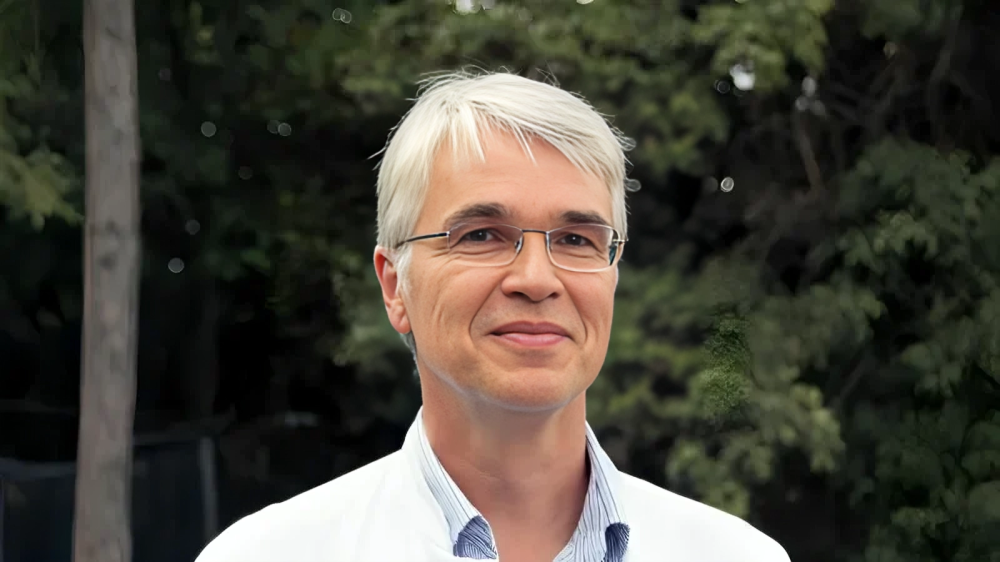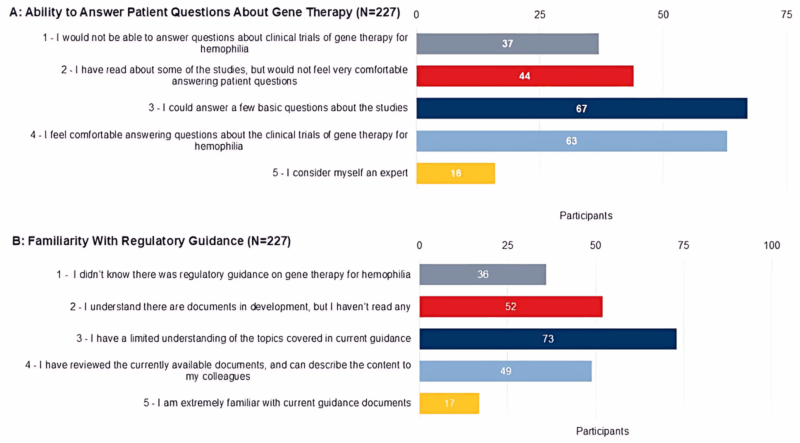
66-Country Survey Exposes Barriers to Hemophilia Gene Therapy
Wolfgang Miesbach, Professor of Medicine at Frankfurt University Hospital, posted on LinkedIn:
”Haemophilia Gene Therapy: New ISTH survey reveals a critical disconnect between clinical innovation and healthcare readiness.
Global survey assessing knowledge, perceptions, and clinical preparedness for gene therapy among haemophilia professionals. Over eight months (August 2023–January 2024), 327 healthcare professionals from 66 countries responded via an anonymous online questionnaire distributed through four major professional organizations.
Current Therapy Limitations
– burden of dosing schedules and prophylaxis
– of inhibitor development
– with injections and venous access
– and reimbursement pressures
– with treatment adherence
– impact on quality of life and joint disease
– breakthrough bleeding and pain
What Was Found Related to Gene Therapy
– 7.5% feel extremely familiar with gene therapy
– 35.6% uncomfortable answering patient questions about trials
– 60% of patients have never discussed gene therapy with their care team
Major Barriers to Implementation of Gene Therapy
– Durability uncertainty
– Variability in patient response
– Cost and reimbursement challenges
– Restrictive eligibility criteria
– Insufficient healthcare system preparedness
Gene therapy is clinically available. What’s missing is confidence, system readiness, and equitable global access. Closing this gap requires targeted professional education, healthcare pathways, and solutions that ensure all eligible patients – ideally, regardless of geography – can access this transformative treatment.
Published in Therapeutic Advances in Hematology, open access link ”
Title: Gene therapy for hemophilia: results of ISTH global survey on current knowledge, attitudes, and preparedness of the hemophilia care team
Authors: Melissa F. Glasner, Wolfgang Miesbach

Stay informed with Hemostasis Today.
-
Feb 23, 2026, 18:13Fight4Hematology Supports Research and Empowers the Next Generation – ASH
-
Feb 23, 2026, 17:59Wolfgang Miesbach: Real-World Evidence of Emicizumab on Joint Outcomes in Hemophilia A
-
Feb 23, 2026, 17:56Shiny K Kajal: The Transfusion Reaction We Often Miss
-
Feb 23, 2026, 17:53Radheshyam Meher: Contributing to the Transfusion Evidence Round-Up for International Childhood Cancer Day 2026
-
Feb 23, 2026, 17:46Mahesan Subramaniam: The Physiological Impact of Anger on Immunity
-
Feb 23, 2026, 17:42Bryan Fry: First Evidence That Bothrops atrox Venom Directly Activates Human Factor VII
-
Feb 23, 2026, 17:34Bastu Odoka: Why Blood Should NOT be Left at the Bedside to ‘Warm’
-
Feb 23, 2026, 17:28Henry Burkitt: Patients Are Challenging How the Medicines Policy System Works in England
-
Feb 23, 2026, 16:50Mutaz Al‑Sabah: Interesting Webinar on FH in Women is Now Available to Watch

